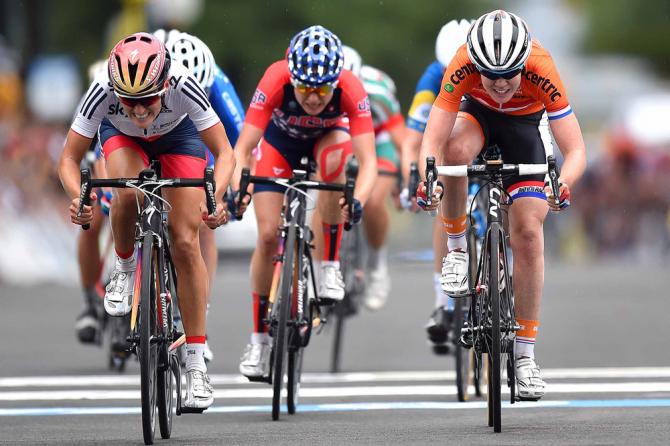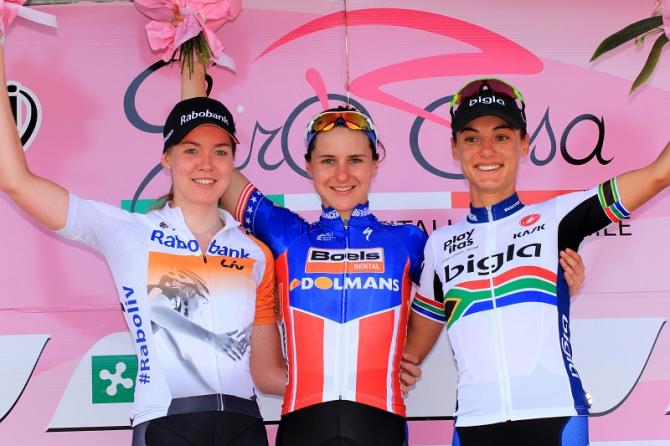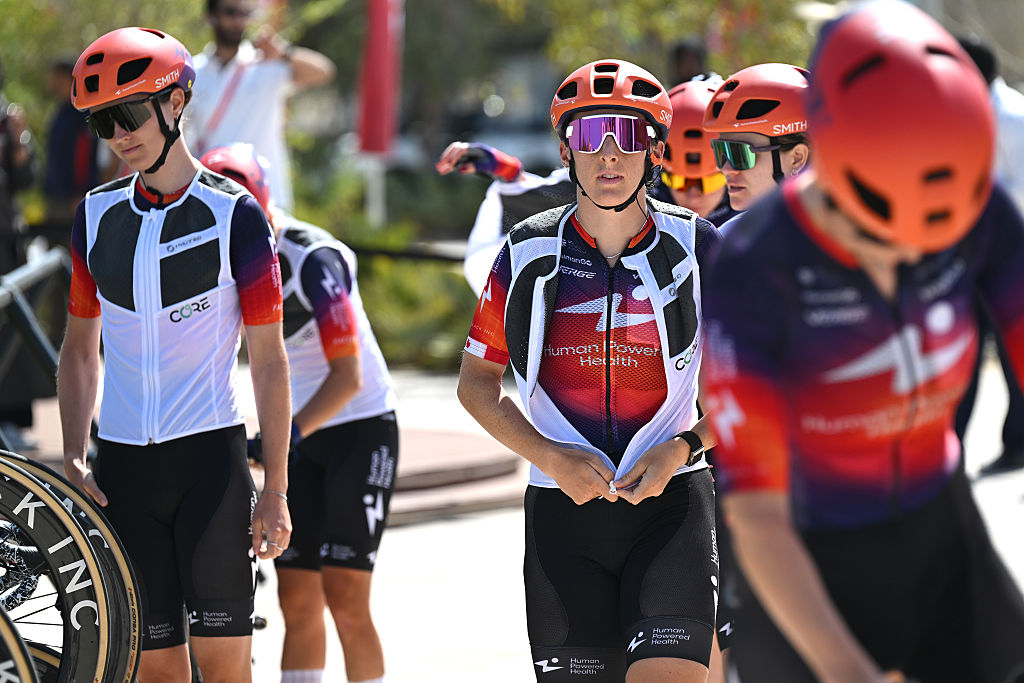Megan Guarnier: Rio Olympics are an all-encompassing goal in 2016
‘The course is really hard, and that makes me excited,’ says US road champion
The latest race content, interviews, features, reviews and expert buying guides, direct to your inbox!
You are now subscribed
Your newsletter sign-up was successful
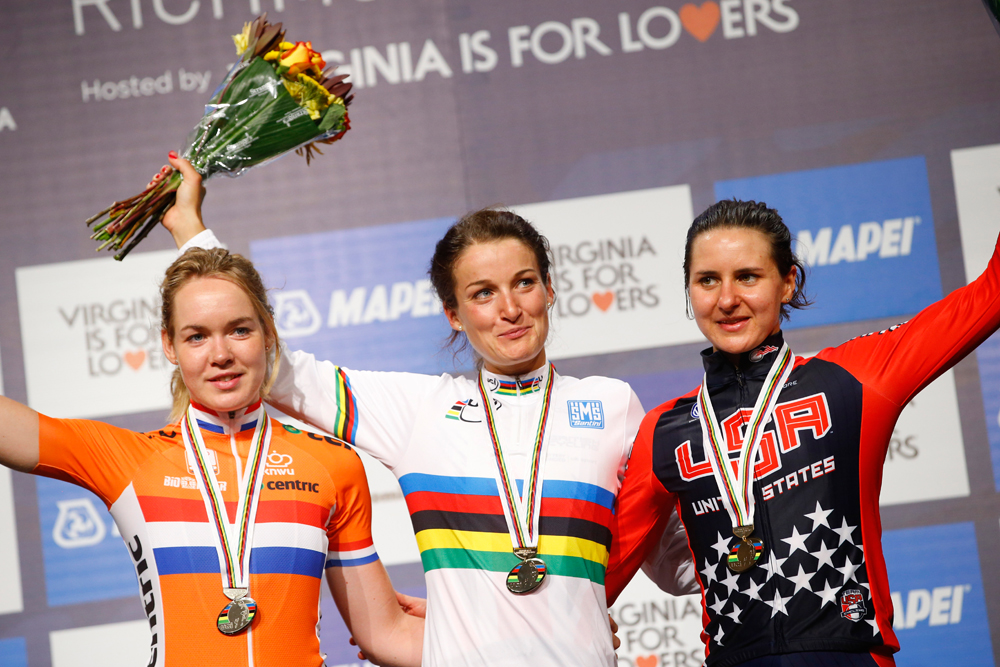
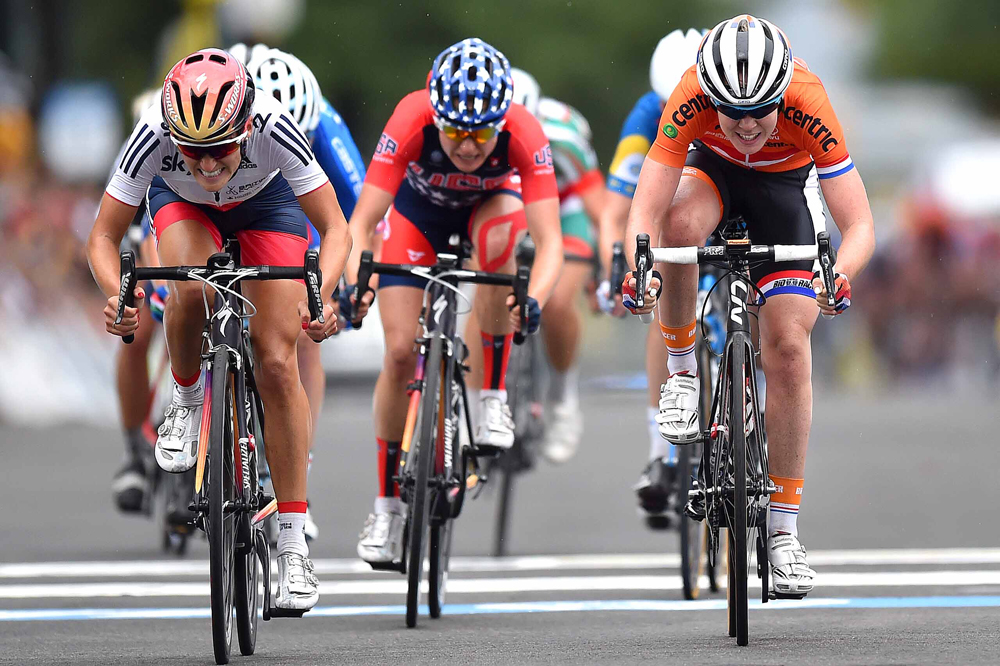
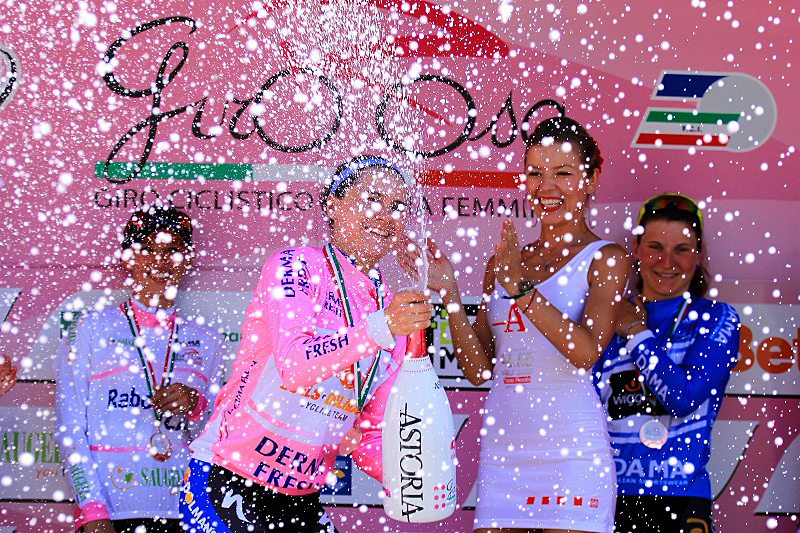
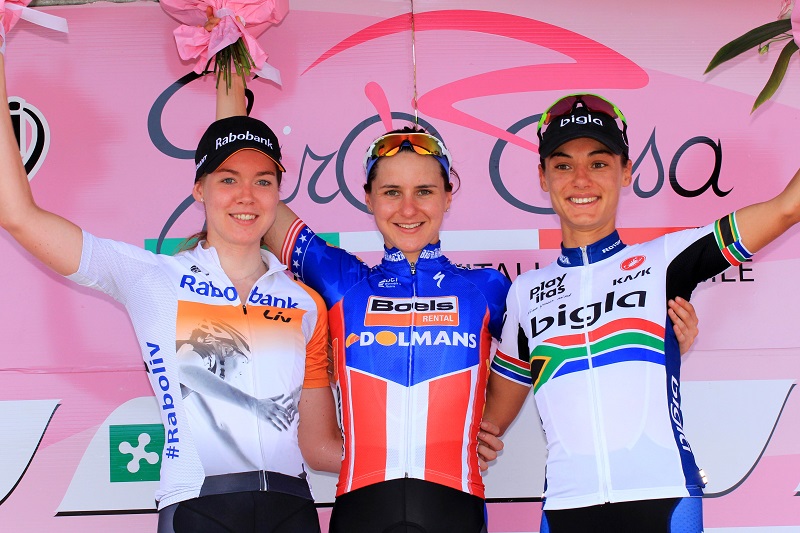
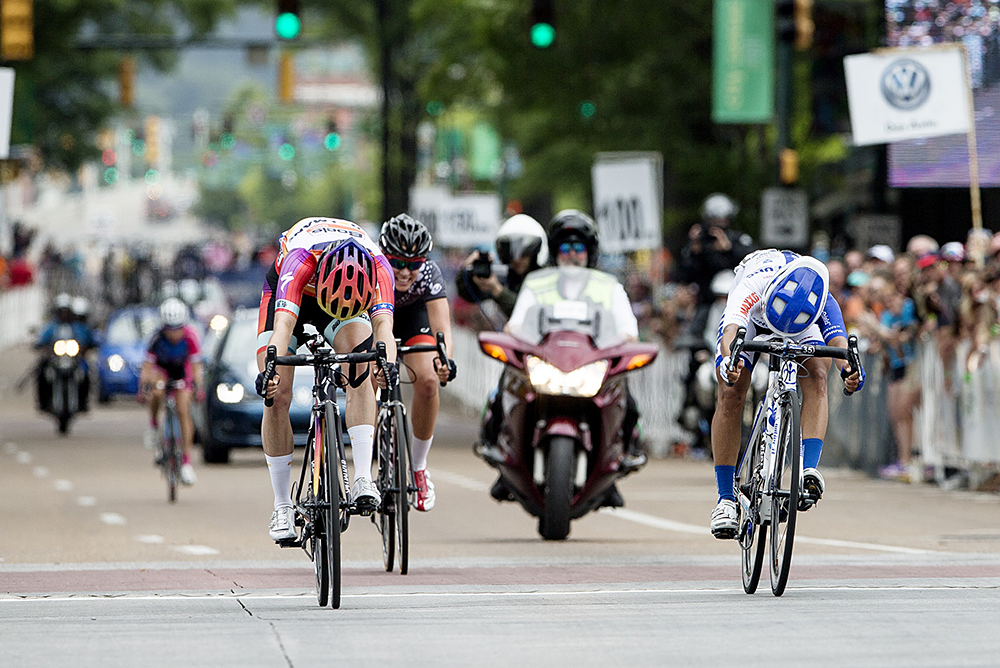
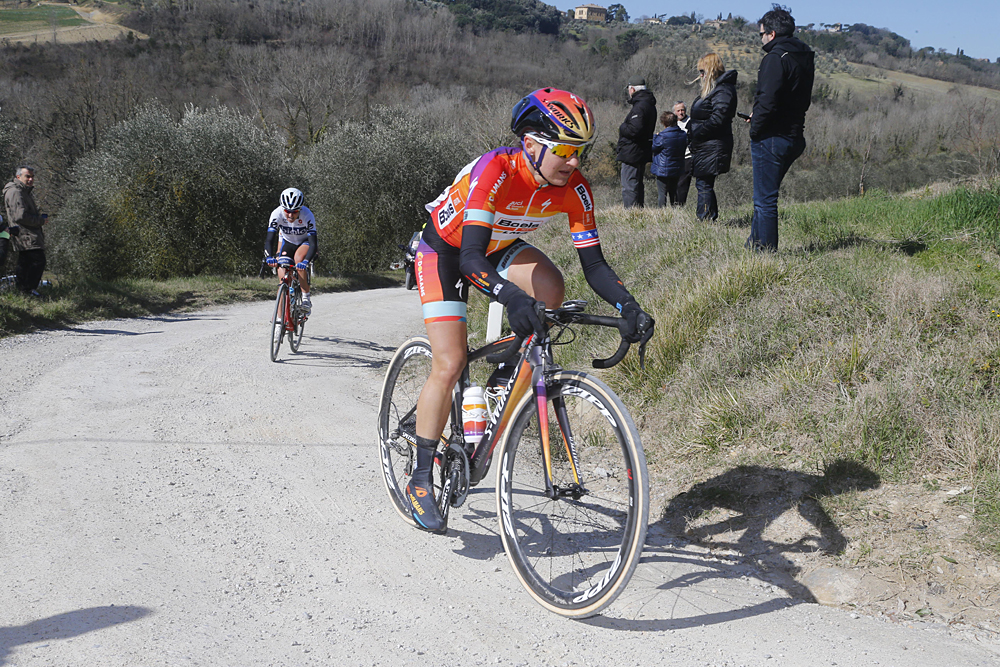
To say that Megan Guarnier (Boels Dolmans) rung out the 2015 season on a high note would be an understatement. The US road champion had the best season of her career to date, and it was a process that was eight years in the making.
Guarnier wins Strade Bianche 2015
Guarnier goes for broke on the Huy in Flèche Wallonne
Guarnier wins women's US pro road championships in Chattanooga
Double win for Guarnier in Giro Rosa
Ladies Tour of Norway: Guarnier wins overall title
Guarnier nets first US women's Worlds road race medal in 21 years
Challenging herself to leave home in pursuit of a bike-racing career in 2008 has resulted in a steady progression of skills, strength and goal setting. It all came to a head this spring when she won her first big race overseas at Strade Bianche and her success continued with a second national title and a stint in the pink jersey at the Giro Rosa.
The most important result was her bronze medal at the World Championships in Richmond, Virginia. Not only was it a great way to cap off 2015, it netted the first US women's Worlds road race medal in 21 years, and it gave her an automatic spot on US national team the Olympic Games in Rio this year.
Guarnier spoke with Cyclingnews about her biggest goals in 2016.
Cyclingnews: How was your off-season and where are you based for the winter?
Megan Guarnier: I’m in California, which is one of our homes or one place where we call home. We’re in the San Francisco area, south of the city. El Niño is getting us now, so it’s been raining a lot. My husband works in California, so I’m here when I can be and then I’m overseas.
CN: Boels Dolmans had the first of three training camps in Calpe, Spain, how come you weren’t able to attend?
The latest race content, interviews, features, reviews and expert buying guides, direct to your inbox!
MG: I couldn’t go because jetlag stinks. I get really good training done here, and my director [Danny Stam] trusts that I’m getting in all my training. I would have loved to have been there with the other girls, but the rule of thumb is that recovery is one day per time zone, and I’m nine time zones away. I'd get there, fight the jetlag, feel horrible the entire time I’m there and then have to travel back to the US for another five days of feeling horrible. You lose so much training because of that. I missed the girls, and I wished I was there, but I also know that it’s not conducive to getting a lot of training done. I’ll be at the other camps.
CN: When you think about the success that you had last year at Strade Bianche, US Nationals, Giro Rosa and World Championships, among others, are you completely satisfied with your season and do you feel like it was a step forward in your career?
MG: Yes, I’m very happy with the 2015 season. If you had told me at the beginning of the year that I would have accomplished as much as I had, I would have told you that you were crazy.
Every year I just want to make improvements and last year I made a huge progression. It’s been a lot of years in the making, and it’s been a lot of hard work, and learning how to best take advantage of my strengths, while still being a teammate. I started racing in Europe in 2008, and it’s been about becoming a better racer every year.
CN: What was your real standout moment of 2015, in your opinion?
MG: There weren’t that many, so I like to think about them all, but I think the breakthrough moment was Strade Bianche because that was my first big single-day win over in Europe.
I wished I had spent the entire Giro Rosa, including the end, in the pink jersey. I didn’t know what to expect out of myself going into that race. I was just focused on the days as they came and my goal was to just get stage wins, and that put us in the pink jersey pretty early.
CN: Your performance at the World Championships was also fantastic. If you think about how close that race was and the strategy involved in it, does it make you wonder if you could one day be a world champion?
MG: It’s always a dream to be a world champion. I don’t regret the race or my results. I do wish the race was more aggressive, but it’s always a gamble at Worlds, whether it’s going to be raced negatively or aggressively. I knew the finish would be hard no matter what, and that final climb was where the fireworks started to go off. I was trying to stay in the moment and finish off the race.
I know that the World Championships in Qatar are probably not suited to my strengths because it’s going to be a flat course. But I don’t think that statement is going to surprise anyone. The more challenging the course is, the better it is for me. I dream of wearing the rainbow jersey, but it requires taking one step at a time. Next year, the Rio Olympics are an all-encompassing goal at the moment. I can’t think much beyond that goal at this time.
CN: Do you feel more relaxed heading into the Olympic year knowing that you have an automatic spot and do you feel like you can better prepare for the event?
MG: How the criteria for the American team is written, I have an automatic spot for the road race at the Olympics, but that is pending my form and health. If I race next year like I’ve raced every other year, that shouldn’t be a problem. I’m the only one with an automatic spot. There are two time trial spots left and one road race spot; we have four spots for the road race but the two time triallist have to race the road race too.
I think having the automatic spot is good because it takes away the stress of the selection process. Sometimes those processes can take away from your performance at the ‘goal’ race because you’re so busy trying to make the team; that process can be exhausting.
The selection is always a super competitive process. We have a lot of riders that could be good on the courses.
Next year, my season will be designed to be on great form for the Olympics and every race leading up to that point, I’ll be motivated to perform and help my teammates win, but there won’t be the stress of trying to qualify for the Olympics.
CN: You haven’t seen the Olympic road race course yet but what do you think of it on paper?
MG: I think it will be a different type of road race with just 60 women versus the 120 women in the peloton that we are used to. It’s going to be a smaller field. I think the course is really hard, and that makes me excited. I think it will be an extremely hard race and I think the strongest rider will be the winner.
It will be my first Olympic Games. It hasn’t really sunk in yet. I think it will sink in more when I get there. At the same time, I’m focused, and I’m trying to treat it like any other race: doing my homework and knowing the course. But it is a very large goal.
CN: Are Boels Dolmans supportive of the riders on the team that are trying to be selected for the Olympic Games?
MG: Yes. No one knows for sure who is going, yet, but we have a good idea of who will likely be selected, which is most of our team. It’s cool because they are super supportive, and they want to see us succeed whether it’s in the Boels Dolmans jersey or our national team jerseys. That’s why it is such a great team.
CN: Olympics aside, what are your other objectives for the 2016 season, especially with the inaugural Women’s WorldTour?
MG: I think it will be a similar season as last year. I’m always super excited about doing the classics, and we have a great team for the classics. The Giro Rosa is a really nice race and one of the hardest, longest races on the calendar and a race that I really look forward to, so we’ll be sending a strong team for that race too.
CN: What are your thoughts on the structure of the new Women’s WorldTour and the new promotional efforts that will be made for each event that makes up the calendar?
MG: I think the Women’s WorldTour is a big and important step forward. I think it’s good that the UCI is getting more interested in women’s racing and in helping to promote women’s racing, and allowing us to make steps forward in our sport. A huge part of that is the media package because we can’t grow our sport if people don’t know about it. At the same time, the people who do know about women’s racing have no access to it or maybe their only access to it is from a mechanic sitting in a team car posting to Twitter about the races.
When I think of the success of the World Championships in Richmond, the number of people who were there to watch and support it, and the non-cyclists out there who were super excited about the race… There’s so much to learn about the sport, but it’s also a really exciting sport. In the peloton right now there is never a guaranteed winner, there is a handful of women who could win and sometimes the winner isn’t from that handful either. I think that keeps people on the edge of their seat.
Requiring a media package for the Women’s WorldTour will really help our sport. And because the whole calendar is a series, it will draw in the bigger teams, allow smaller teams to develop, give more women access to equipment, access to races and it will grow our field to allow more women to race bikes. And just get more people on bikes in general.
CN: When you saw the list of 17 events added to the Women’s WorldTour was it what you had expected?
MG: Yes because all the former World Cups are in there and the 1.1 and 2.1 events in there too. It is all the races that we’ve been going to anyway, all the higher priority events. Turning that into a series will provide a narrative to the season. It was also nice to see additions to it like La Vuelta in Madrid. The higher level events that we can add to the calendar the better.

Kirsten Frattini has been the Editor of Cyclingnews since December 2025, overseeing editorial operations and output across the brand and delivering quality, engaging content.
She manages global budgets, racing & events, production scheduling, and contributor commissions, collaborating across content sections and teams in the UK, Europe, North America, and Australia to ensure audience and subscription growth across the brand.
Kirsten has a background in Kinesiology and Health Science. She has been involved in cycling from the community and grassroots level to professional cycling's biggest races, reporting on the WorldTour, Spring Classics, Tours de France, World Championships and Olympic Games.
